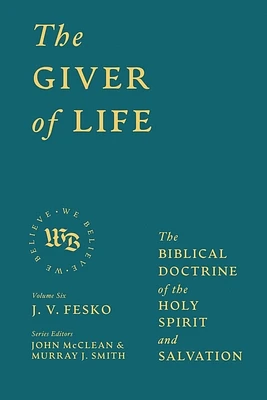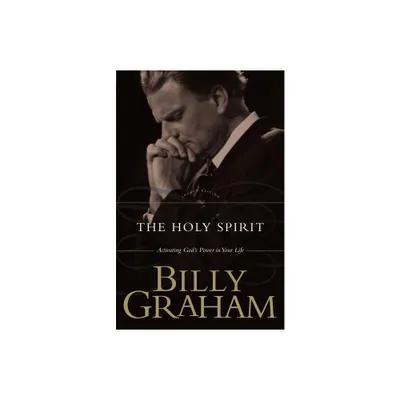Home
We Believe in the Holy Spirit
Loading Inventory...
Barnes and Noble
We Believe in the Holy Spirit
Current price: $60.99


Barnes and Noble
We Believe in the Holy Spirit
Current price: $60.99
Loading Inventory...
Size: OS
*Product Information may vary - to confirm product availability, pricing, and additional information please contact Barnes and Noble
"The Spirit blows where it pleases," Jesus said to Nicodemus.
"You hear its sound but you cannot tell where it comes from or where it is going. So it is with everyone born of the Spirit."
The Spirit, like the wind, is hard to pin down. Any discussion of the Spirit is fraught with the difficulty of speaking about something or someone who defies definition and who purposely averts attention from himself toward someone else. So it is with the Spirit. And so it is with the church's reception of and conversation about the Spirit, even in its early centuries. It is hard to pin down, and the church's voice on the Spirit has been about as loud as the whisper of the wind that indicates the Spirit's presence.
The church's teaching on the Holy Spirit is perhaps what Nicolas Berdayev has called "the last unexplored theological frontier." In these latter days of the church, this "final frontier" is receiving increasing attention. The rise of the Pentecostal movement, the engaged witness of the Orthodox churches, which have historically been more sensitive to the role of the Spirit, coupled with the fact that people in general are looking for a deeper and more relational faith, perhaps help explain in part the increased attention the Spirit is getting.
It is appropriate then that the base camp of this exploration be established in the early understanding of the church on these matters. Following the outline of the succinct third article of the Nicene Creed, Joel Elowsky opens up to us vistas of the Holy Spirit with expertly selected passages from ancient Christian writings.
This portion of the Creed, apart from the
filioque,
is largely uncontroversial. The full deity of the Spirit is highlighted not so much by theological definition as by the emphasis on worship and action. While the Creed itself does not speak directly of the work of the Spirit in justification, sanctification and the like, the early church theologians nevertheless had much to say on these issues. Here we see clearly how the Spirit is "giver of life."
The five-volume Ancient Christian Doctrine series follows up on the acclaimed Ancient Christian Commentary on Scripture to provide patristic commentary on the Nicene Creed, translating source material from the church fathers into English for unparalleled insight into early church history.
"You hear its sound but you cannot tell where it comes from or where it is going. So it is with everyone born of the Spirit."
The Spirit, like the wind, is hard to pin down. Any discussion of the Spirit is fraught with the difficulty of speaking about something or someone who defies definition and who purposely averts attention from himself toward someone else. So it is with the Spirit. And so it is with the church's reception of and conversation about the Spirit, even in its early centuries. It is hard to pin down, and the church's voice on the Spirit has been about as loud as the whisper of the wind that indicates the Spirit's presence.
The church's teaching on the Holy Spirit is perhaps what Nicolas Berdayev has called "the last unexplored theological frontier." In these latter days of the church, this "final frontier" is receiving increasing attention. The rise of the Pentecostal movement, the engaged witness of the Orthodox churches, which have historically been more sensitive to the role of the Spirit, coupled with the fact that people in general are looking for a deeper and more relational faith, perhaps help explain in part the increased attention the Spirit is getting.
It is appropriate then that the base camp of this exploration be established in the early understanding of the church on these matters. Following the outline of the succinct third article of the Nicene Creed, Joel Elowsky opens up to us vistas of the Holy Spirit with expertly selected passages from ancient Christian writings.
This portion of the Creed, apart from the
filioque,
is largely uncontroversial. The full deity of the Spirit is highlighted not so much by theological definition as by the emphasis on worship and action. While the Creed itself does not speak directly of the work of the Spirit in justification, sanctification and the like, the early church theologians nevertheless had much to say on these issues. Here we see clearly how the Spirit is "giver of life."
The five-volume Ancient Christian Doctrine series follows up on the acclaimed Ancient Christian Commentary on Scripture to provide patristic commentary on the Nicene Creed, translating source material from the church fathers into English for unparalleled insight into early church history.


















